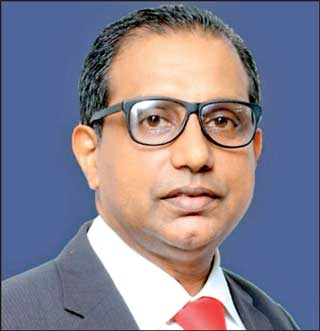Saturday Feb 14, 2026
Saturday Feb 14, 2026
Monday, 14 March 2022 00:00 - - {{hitsCtrl.values.hits}}
 |
| CSSL President Damith Hettihewa
|
The International Professional Practice Partnership (IP3) has appointed Computer Society of Sri Lanka President Damith Hettihewa as a board member of the globally acclaimed accreditation body for ICT professional organisations.
The International Professional Practice Partnership (IP3) is an activity of the International Federation for Information Processing (IFIP) focused on professionalism of ICT practitioners.
IFIP comprises approximately 60 member associations around the world, concerned with the role of information and communications technology (ICT) in society and the sharing of knowledge to enhance the application of ICT for the benefit of the global community.
IFIP is a non-government, non-profit umbrella organisation for national societies working in the field of information processing. It was established in 1960 under the auspices of UNESCO.
Damith Hettihewa is the President of Computer Society of Sri Lanka (CSSL) and a leading industry contributor in Sri Lanka. He currently serves as the Managing Director of Nimbus Cloud Lanka Ltd.
He has previously served as the Chief Executive Officer and a Board Member of Information and Communication Technology Agency (ICTA) and was elected as the Chairman of the Governing Council of United Nations Social Economic and Commission’s APAC Centre for ICT Development (UNESCAP/APCICT) in 2018.
Damith Hettihewa has served in the executive council of CSSL since 2014 and held various positions prior to being elected as the President in 2021.
Invitation to join the IP3 Board is a signification recognition of CSSL‘s commitment to fostering professionalism and uplifting the professional standards amongst ICT practitioners in Sri Lanka. IP3 is a partnership to promote professionalism in the ICT profession equal to the older and longer established professions.
The partnership works to define international standards and create a global infrastructure that will encourage and support the development of both practitioners and employer organisations in the developed and developing world.
It does this through the creation of a worldwide set of professional certification schemes recognised as the hallmark of true ICT professionalism, delivered through independent national member societies and supported by development frameworks for both individuals and organisations.